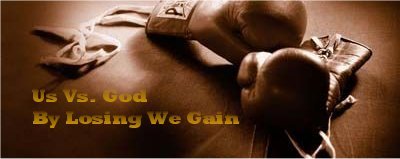This is an article by James Spurgeon. I think this is the best description of unconditional election that I have ever heard. Be sure to check out
Pyromaniacs, which is where this was posted.
(Note: I have not changed any wording on this article. It is %100 James Spurgeon and I agree with him %100.) -Josh
Fundamental misunderstandings.In our struggle with coming to grips with what God has inspired for us through the holy prophets and apostles there are various obstacles which we must overcome. Not the least of those obstacles is our sinful nature. Sin has affected every part of our being, especially our minds. The mind of the natural man, Paul tells us, is bent against God. It is swelled up with pride. It is swelled up about self. When we are regenerated by the Spirit of God, all the old vestiges of sin are not immediately wiped away from our minds. We still must contend with them each and every day just like we contend against all other aspects of our carnal nature.

Now, back to those fundamental misunderstandings. Our minds are flawed by imperfection and marred by our sin nature. Yet, we are told to love the LORD our God with all our heart and with all our
mind. We are also told that a transformed life begins with a renewing of our mind.
Romans 12:2 (ESV)
Do not be conformed to this world, but be transformed by the renewal of your mind, that by testing you may discern what is the will of God, what is good and acceptable and perfect.
The renewal of our minds is a part of our sanctification, a part in which we are active participants. The reason we need this renewal is that our minds are fallen and marred by sin. In our Christian walk, we must be able to discern God's will through God's word. This makes the active renewing of our minds very important. We must always be willing to question ourselves and our own thinking. But most of us have too much pride to do that. Pride is sin and that sin brings us back to square one - our thinking suffers because of our fallen nature.
Most of us just don't
want to think. Thinking requires time, it requires energy, it calls on us to examine ourselves and admit we could be wrong. We don't like it because we are prideful and lazy - sin.
That brings us to our topic. Many people who reject the doctrine of unconditional election do so because it seems unjust to them. Of course, God can do nothing unjust, so election is thrown immediately out the window. They reject it because they believe it is an attack on God's justice, and thus an attack on God himself. The reason they believe it is an attack on God's justice is because they set up the wrong model in their minds. It stems from a fundamental misunderstanding of what unconditional election is.
Yes, it really is that simple.
Here's the way they view it. Say they:
Out of ten people that God created, he chooses five of them to go to heaven and five of them to go to hell - unconditionally - and there's nothing any of those ten individuals can do about it.
(If I've heard that once, I've heard it a thousand times.)
Well, no wonder they reject that model. I would, too, if I thought that's what unconditional election were or what the Bible teaches about it. But their view is fundamentally flawed.
It is the wrong model.Here's the Bible model:
Out of ten people that God created, all of them willfully chose sin and rebellion against God. They chose sin. They chose death. They chose judgment. Hell is their free choice. They willfully sin and therefore they willfully go to the place where sinners go. Unconditional election is where God says, "I am going to over-rule the decisions of five of them and in my grace I am going to change their hearts and their natures so that they will turn to me in repentance and cling to me in faith." The other five God leaves to the consequences of their own choices which were freely made. In no case does God violate the free volition of any of them. All ten get what they want. In the case of five of them, God simply changed their nature and their wants. Five get justice. The other five get grace, their just judgment being poured out upon Christ as their Substitute.
God did not choose among innocents which ones he would save and which ones he would damn. God chose among the guilty which ones he would save and the rest he left to just (righteous) condemnation. We adamantly hold to unconditional election unto salvation. At the same time we adamantly reject any model which portrays an
unconditional election unto damnation.

Now, if you are going to reject unconditional election, at least have the decency to learn what it really is. Don't just lazily hold to a false view of what it is and reject that. Don't let pride and laziness stop you from gaining an understanding of the truth.


 Now, if you are going to reject unconditional election, at least have the decency to learn what it really is. Don't just lazily hold to a false view of what it is and reject that. Don't let pride and laziness stop you from gaining an understanding of the truth.
Now, if you are going to reject unconditional election, at least have the decency to learn what it really is. Don't just lazily hold to a false view of what it is and reject that. Don't let pride and laziness stop you from gaining an understanding of the truth.
